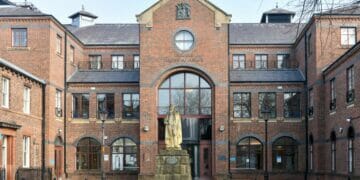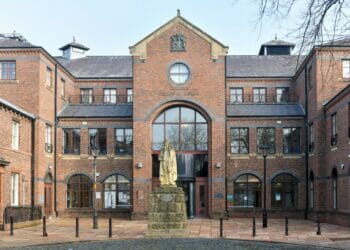A National Trust property in Eden has fallen victim to a radical cost-cutting programme introduced by the conservation and heritage charity.
It has been announced that Acorn Bank at Temple Sowerby is to be downgraded to a “Little Gem” property.
This will involve the permanent closure of the popular shop and cafe, a reduction in opening hours and “an offer focused around the garden and parkland”.
Volunteers who this week received notice of the downgrade said that it would make the property a much less attractive place to visit with resultant reductions in visitor numbers and income likely to outweigh cost savings.
The notice said that as a result of coronavirus the world was changing radically and the trust’s income had been hard hit.
“We need to act quickly to ensure we can serve our mission well into the future — producing and caring for places so people and nature can thrive,” said the notice from Georgie Lofthouse, general manager South and East Cumbria and Morecambe Bay.
“This means we need to cut our costs now if we are to remain sustainable in the long term.”
A statement from the trust said that coronavirus has affected almost every aspect of the trust’s income and it expected to lose almost £200m as a result of the pandemic.
“As part of our work to ensure the charity is sustainable for the future, we are proposing to reopen a small number of our places in a different form,” said the statement.
“This approach will help us to deliver more public benefit at lower cost. Volunteers are concerned about their future roles but the trust moved to reassure them.
The Herald has previously reported that the charity had announced it is planning to make 1,200 staff redundant nationwide as it looks to make £100m in savings as a result of the pandemic.
As well as furloughing staff, the trust has had to draw on reserves, borrow and stop or defer projects.
The trust also hopes to save cash by changing the way it operates.
Acorn Bank is renowned for its herb garden, fruit orchards and comprehensive collection of medicinal and culinary plants.
There is a red sandstone property which houses the visitor reception along with the shop and tearoom and a partially restored watermill, the future of which is being considered by the trust.































